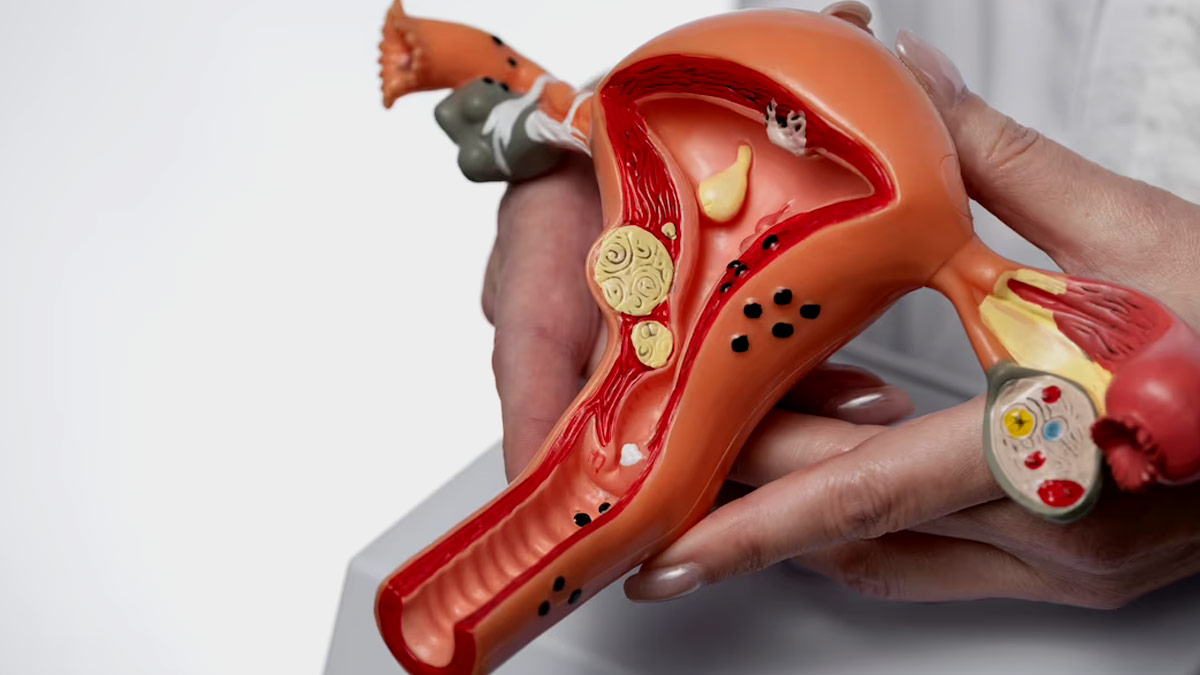
Polycystic Ovary Syndrome (PCOS) is a common endocrine disorder which may impact on fertility and hormonal balance is well-known, there's another concern that often accompanies PCOS: hair loss. Many women with PCOS experience significant hair thinning, shedding, and overall hair quality deterioration.
Table of Content:-
Intricate Connection Between PCOS and Hair Loss
Hair loss, medically known as androgenetic alopecia, is influenced by a complex interplay of genetic, hormonal, and environmental factors. When it comes to PCOS-related hair loss, hormonal imbalances play a central role.
According to Dr Sheetal Sachdeva, MBBS, DGO, DNB, Consultant Obstetrics & Gynecology at Apollo Cradle & Children’s Hospital New Delhi, Moti Nagar, androgen hormone levels are elevated in PCOS women. This is why these women have greater female pattern hair loss and androgenic alopecia than other healthy women. Because of hormonal oscillations, these alterations are also frequent in postmenopausal women.
Hyperandrogenism: The Culprit Behind Hair Loss
PCOS is characterised by hyperandrogenism, an excess of male hormones in the female body. The increased levels of androgens can disrupt the delicate balance between hair growth and hair shedding, resulting in a condition known as female pattern hair loss (FPHL).
Also read: What Is the Difference Between PCOS and PCOD?
The hair follicles become more sensitive to androgens, leading to a gradual shortening of the growth phase (anagen) and a lengthening of the resting phase (telogen). Over time, infected hair follicles produce thinner, weaker strands that are more prone to shedding.

Dr Mansi Verma, a Gynaecologist at Veera Health, an Online PCOS Clinic said, "sometimes hair loss can also be a result of thyroid disorders, nutritional deficiencies, scalp disorders like seborrheic dermatitis, and also environmental factors like air pollution or water quality or even stress related."
Insulin Resistance and Inflammation
Insulin resistance, another hallmark of PCOD, may also contribute to hair loss.
According to the International Journal of Reproductive Medicine, insulin is a hormone responsible for regulating blood sugar levels, but in PCOD, cells become less responsive to its effects.
This can lead to increased insulin levels in the bloodstream, triggering a cascade of hormonal changes and inflammation. Chronic inflammation may negatively impact hair follicles, further exacerbating hair loss in individuals with PCOS.

Coping with PCOS-Related Hair Loss
While managing PCOS-related hair loss can be challenging, there are several strategies that can help improve the condition:
Lifestyle Modifications
Maintaining a healthy lifestyle by incorporating regular exercise, a balanced diet, and stress reduction techniques can positively impact both PCOS and hair health.
Medications
Consultation with a healthcare professional specialising in PCOS is crucial. They may prescribe medications such as anti-androgens or medications to manage insulin resistance, which can potentially address hair loss.
Topical Treatments
Over-the-counter topical treatments may stimulate hair regrowth and slow down further hair loss. These treatments are widely available and can be effective when used consistently.
Hair Care Practices
Adopting gentle hair care practices, such as avoiding excessive heat styling, minimising chemical treatments, and using mild shampoos and conditioners, can help reduce stress on fragile hair strands.
Psychological Support
Hair loss can have a significant psychological impact. Seeking support from friends, family, or professional counsellors can aid in coping with the emotional aspects of hair loss.
For women with PCOS, hair loss can be an additional burden in an already challenging condition. Understanding the underlying mechanisms behind PCOS-related hair loss and adopting appropriate management strategies can significantly improve the condition. It's important to remember that managing PCOS requires a comprehensive approach, including medical interventions, lifestyle modifications, and emotional support. By addressing both the hormonal imbalances and the emotional impact of hair loss, women with PCOS can regain a sense of control and confidence, taking proactive steps towards healthier hair and overall well-being.
[Disclaimer: The information in this article is provided by a registered medical practitioner. However, we recommend you consult your healthcare provider for accurate diagnosis and treatment.]
Read Next
Do You Drink Enough Water During Pregnancy? Expert Lists The Importance Of Staying Hydrated
How we keep this article up to date:
We work with experts and keep a close eye on the latest in health and wellness. Whenever there is a new research or helpful information, we update our articles with accurate and useful advice.
Current Version